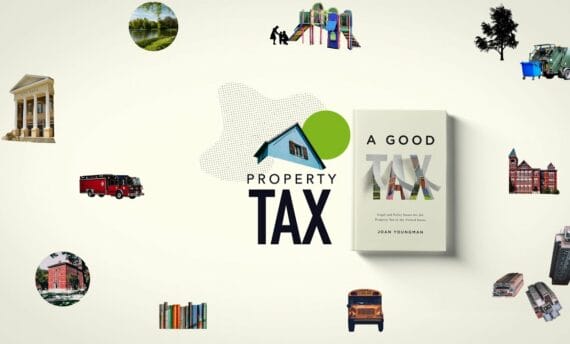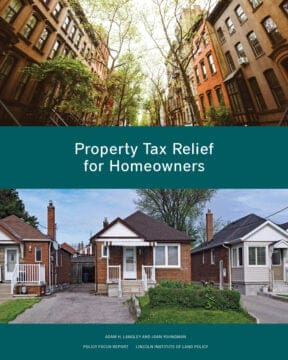Introduction to the Property Tax
We have developed a variety of resources designed to promote understanding of the basic functions of the property tax and its importance as a revenue source for local government. Explainer videos explore the mechanics of how the property tax works and use real-life examples to demonstrate its significance in government finance. Other resources discuss considerations for policymakers and clarify important aspects of property taxation.
Videos

Property Tax 101: Why the Property Tax
Why is the property tax the bulwark of local government finance? What is the role of state aid in a healthy property tax system? This video explores these questions and more through the experiences of two Massachusetts municipalities with very different socioeconomic makeups: Arlington and Lawrence.

Property Tax 101: The Mechanics
This explainer video walks through the mechanics of how the property tax works and why it is stable and effective.
Property Taxes: What Everybody Needs to Know
The property tax is the largest single source of revenue under the control of state or local governments in the United States. Property taxes provide a fundamental fiscal foundation for all types of local governments, but structural characteristics that make the property tax different from other types of taxes can lead to confusion and misunderstanding. This paper helps to inform the public about the property tax by examining its importance to local governments, how the property tax impacts homeowners, and how property tax burdens are distributed.
Read the Paper
Property Tax Relief for Homeowners
This report is the go-to resource on US states’ options for providing property tax relief for homeowners without compromising municipal fiscal health or services. Policymakers frequently face political pressure to reduce property taxes, but many approaches undercut the success of adopted policies. The authors present the pros and cons of measures that can effectively provide relief without undermining the property tax system. By covering the full range of policies, this report is relevant in practically any state policy debate about property tax relief. This report will be an essential resource for state legislators, governors, students of public finance, and policymakers who help make decisions about property tax relief.
 This course examines the deep problems of the Massachusetts property tax in the 1970s and the subsequent reforms that created one of the most functional and fair systems in the United States.
This course examines the deep problems of the Massachusetts property tax in the 1970s and the subsequent reforms that created one of the most functional and fair systems in the United States.
 This online self-paced course provides an overview of how local governments in the U.S. raise and spend money for the public services and infrastructure that are foundational to a high quality of life.
This online self-paced course provides an overview of how local governments in the U.S. raise and spend money for the public services and infrastructure that are foundational to a high quality of life.

